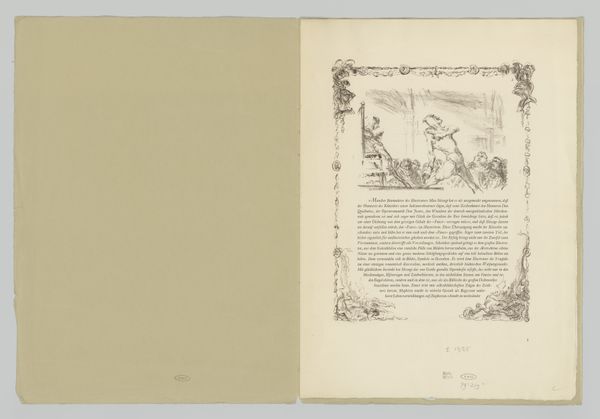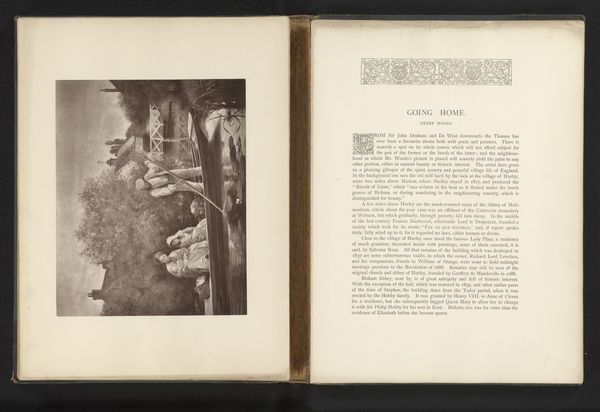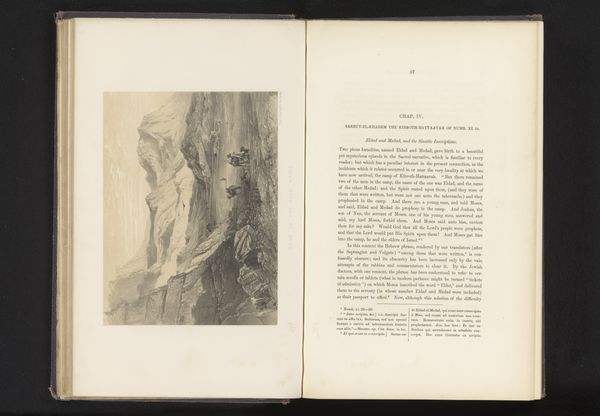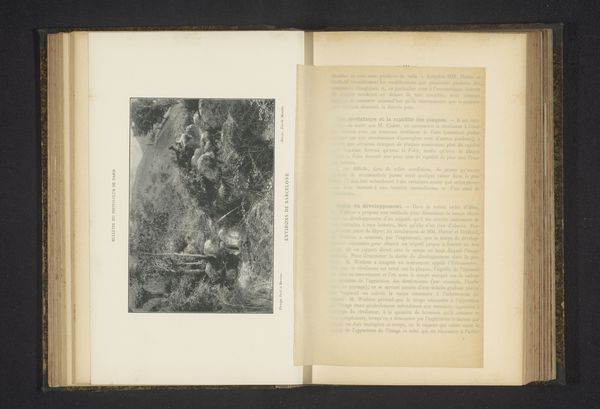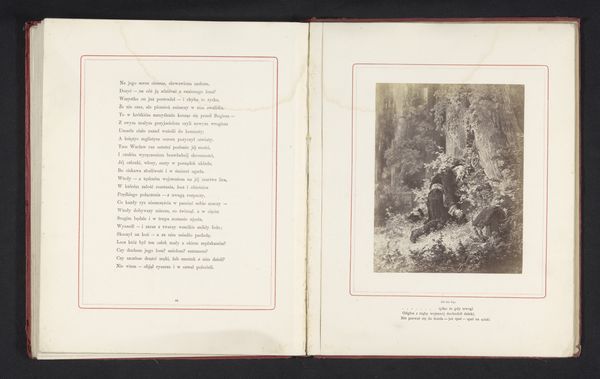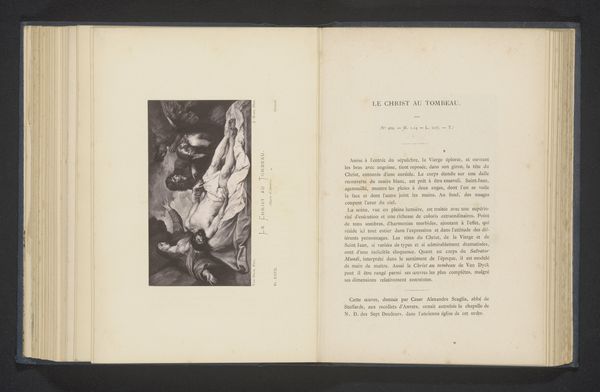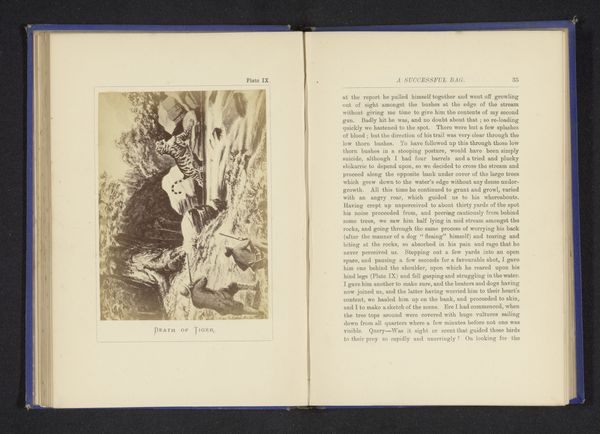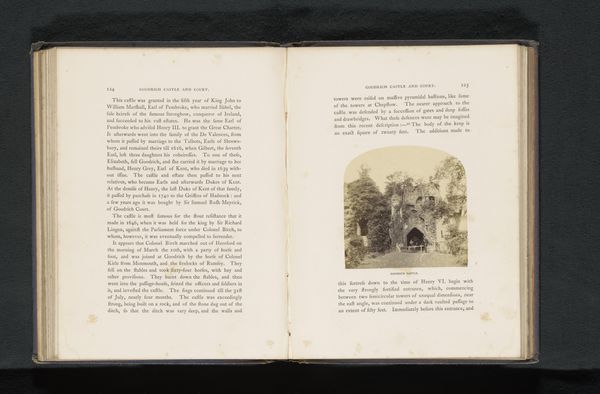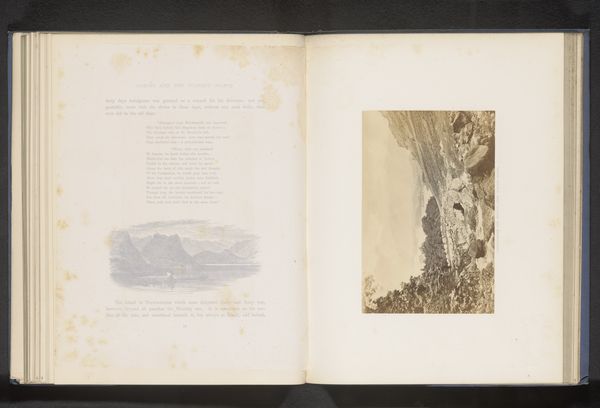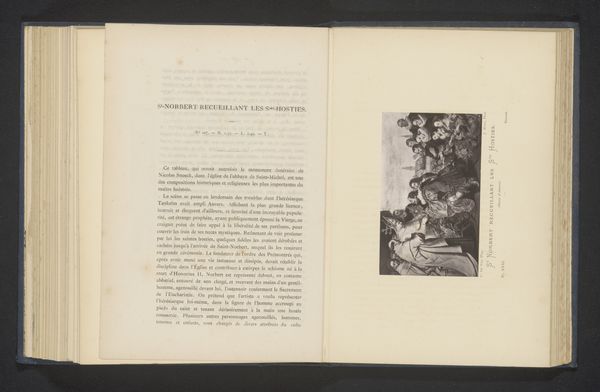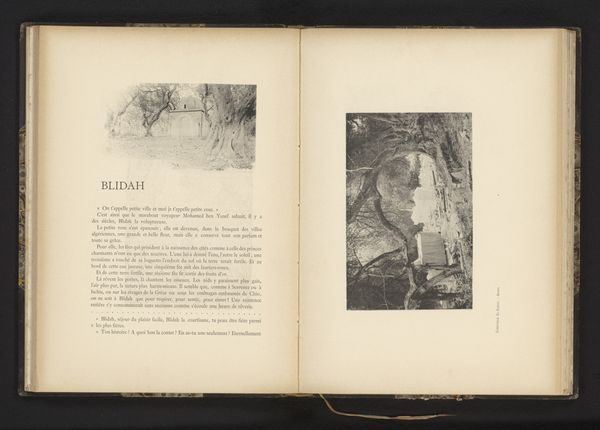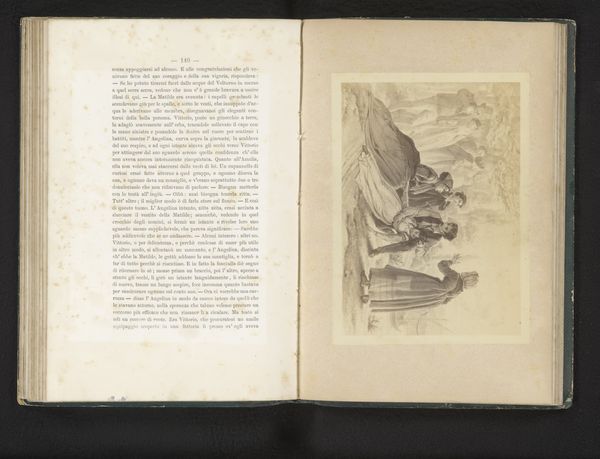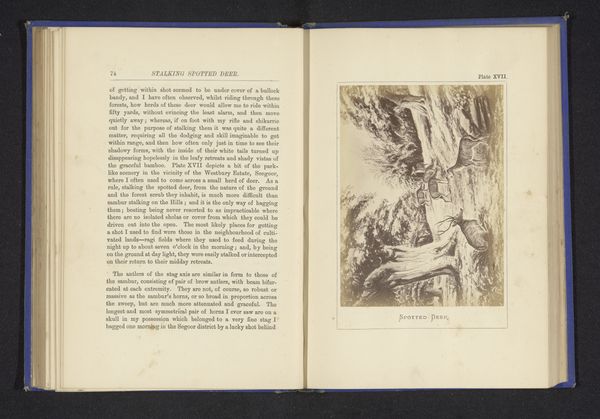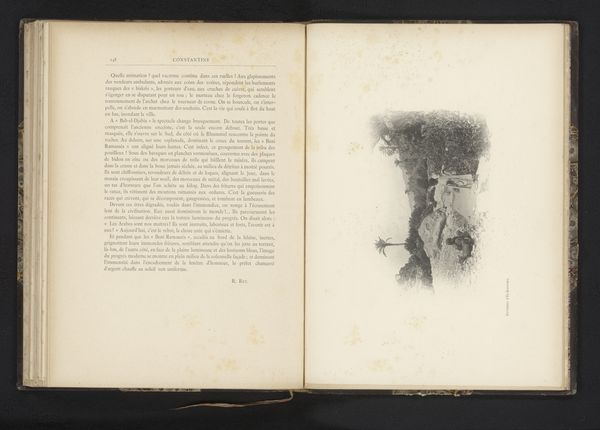
Dimensions: height 454 mm, width 330 mm
Copyright: Rijks Museum: Open Domain
This illustration for Faust was made by Max Slevogt, sometime around the turn of the century, probably with graphite or charcoal on paper. It’s interesting to look at how an artist responds to a story, to see where they put their energy, what they emphasize. The wispy marks here feel urgent and searching, like Slevogt is trying to capture something fleeting, a ghost or a half-remembered dream. I love the way the figures emerge from the swirling darkness, built up with layers of scribbled lines. You can almost feel the artist’s hand moving across the page, feeling its way through the shadows. Look at how the light seems to emanate from within the scene, glowing from behind the figures and illuminating their forms. It's almost like they are trapped inside a cloud. The ambiguity invites you to project your own interpretations onto the work. Like any good story, it leaves space for the viewer to fill in the gaps. I think of Goya's ghostly lithographs and etchings, and also the more dreamlike works of Odilon Redon.
Comments
No comments
Be the first to comment and join the conversation on the ultimate creative platform.
